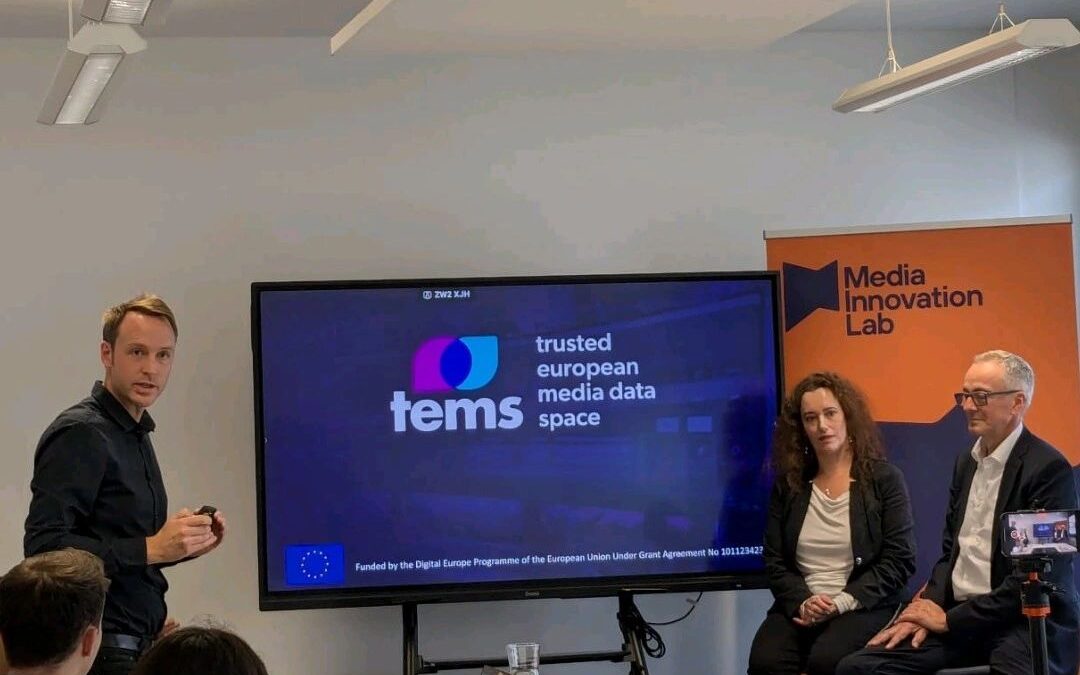TEMS’ presence at Media Labs Days #8 introduced the concept of data spaces and their significance for the media industry, highlighting specific benefits. Data spaces were described as decentralised infrastructures enabling secure data exchange across ecosystems, in line with the European Union’s digital strategy to foster data portability and interoperability through initiatives such as GAIA-X.
Diana Silva Franco, journalist and communications coordinator for TEMS, was joined by Véronique Demilly from France TV and Rüdiger Baumberger from APA-DeFacto to discuss the practical applications of data spaces in breaking down data silos and enhancing collaboration. The TEMS project, a three-year initiative co-founded by the EU, with a consortium of 42 partners, is the flagship European effort to build a resilient, data-driven ecosystem in the media sector. TEMS is developing eight trials focused on media industry challenges such as news verification, audience data analysis, content syndication, and metadata management.
It was clarified that TEMS is not a centralised data storage system. Content creators retain ownership of their data, which remains stored on their own servers. TEMS functions more like a catalogue, providing a framework for accessing data across a network rather than hosting it. The project emphasises data sovereignty, with participants controlling their data and choosing which information to share and under what conditions. This approach ensures that TEMS supports collaboration without centralising content, distinguishing it from similar commercial initiatives, which often involve a single entity controlling data.
Additionally, TEMS does not aim to disrupt existing pricing models for content. The goal is to simplify access, making the process more efficient while preserving the current business relationships between content providers and publishers. TEMS is designed to provide the necessary infrastructure for smart contracting and digital transactions without fundamentally altering content pricing structures.
The session concluded with plans to expand TEMS participation, emphasising transparency, equal opportunities, and evolving the platform to address new business needs in the media ecosystem.
